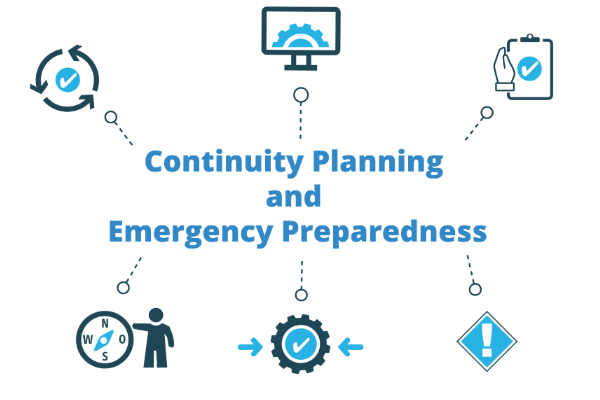 It’s been nearly 20 years since I put together my first Emergency Response and Business Continuity plans. At that time, we were facing a post 9/11 reality where many of us in leadership positions in higher education were responding to a wide variety of disruptions that could shut down our campuses for a short time.
It’s been nearly 20 years since I put together my first Emergency Response and Business Continuity plans. At that time, we were facing a post 9/11 reality where many of us in leadership positions in higher education were responding to a wide variety of disruptions that could shut down our campuses for a short time.
Now suddenly, higher education institutions find themselves in a position where they may need to shut down their physical buildings for a longer period of time. This will be difficult since brick and mortar buildings and face-to-face classrooms have been fundamental to higher education for so long. While online has become widely accepted over the past 25 years, we know that there are those that need help to prepare – and there are some special considerations to take into account when looking toward online systems as a response to emergency situations.
With the coronavirus making its way around the globe, OLC has started to hear from many institutional leaders with questions about how they could quickly move classes online in the event of a temporary shutdown of the campus. Those that have felt the impact of a campus shut down due to natural disasters like hurricanes, tornadoes, fires or floods may already have some plans in place. For others, this move forces them to expand already existing online offerings. And for some, the move to online may be a completely new endeavor.
For those of you who could use some help preparing for a quick shift to online during a campus shutdown, I’d like to share some tools and resources to consider. This is not an all-encompassing list, but it should help you get started. I encourage those of you who have been through similar circumstances to share your ideas and recommendations at the bottom of this post.
- Learning Management System. For those that do not already have an operational LMS, this is the place to start. You need a good LMS that provides the tools faculty need to build online courses and can create an effective learning environment for the students. The harsh reality is that without having something in place, this can be a challenge to negotiate a contract and set up quickly.
If you already have an LMS in place, don’t give yourself a pat on the back just yet. Do you know if your system has the capacity to add significantly more classes into that environment? Do you have the staff to help? You also need to check on the tools and resources you have to support the LMS and make sure it is adequate.
- Professional Development. Ok, so you have an LMS in place and some of your faculty have used it to teach online or blended classes. What about everyone else? They will likely need some training on how to use the technology. Do you know how you will deliver that? If you have faculty that have limited experience with the LMS a little bit, do they know how to effectively teach in a fully online class? Look for professional development resources that offer the essentials and can accommodate quick learning. OLC can actually get your team up to speed with several short-term or self-paced workshops (see below under Resources). There are advanced classes too, but getting the basics will help those new to online teaching.
- Student Support. If you already offer online classes, you should have student support services already in place. However, you will need to make sure that you are appropriately “staffed up” to support students during the emergency closure. Take a look at the OLC Student Support Scorecard to understand best practices that you should have in place. Even after the emergency ends, you should make sure that you are following best practices for your online students.
- Technology Support. Faculty and students alike are going to need 24/7 support. This is critical to a successful move to online so make sure that you have basic technology support along with support related to the use of the LMS and any additional tools used to deliver content.
- Coordination Across Campus. As you consider the items above and move to make a plan and put resources in place, it is critical to consider your coordination and communication plans. In addition to communicating in general with administration and faculty, you might consider preparatory communications to deans and department chairs to better understand their needs, set expectations, and offer support. You may also want to touch base with support services, such as those in Student Affairs and IT. Additionally, a conversation with your campus marketing and communications department can help things run smoothly when or if you need to convey information to students, staff, and the community.
OLC is organizing a number of resources to help you during this time. Below are some immediate resources that can help with a transition to online. We will continue to update our website with more information as it becomes available so check back regularly.
Resources
- Webinars
- Professional Development
- Instructor-led Workshops
- Self-paced Workshops
For a full list of resources and initiatives visit the OLC OLC Emergency Preparedness Resources webpage.


